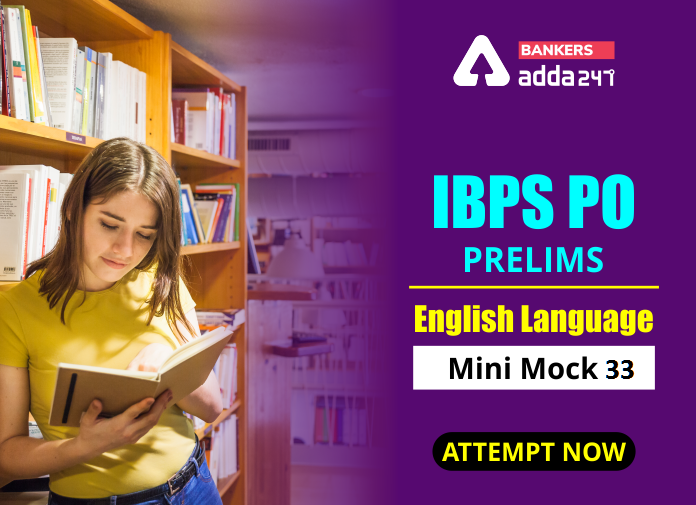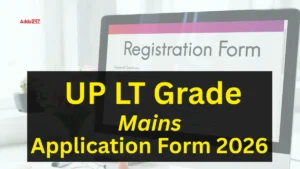Intellectual property (IP) regulation remains an active issue in trade negotiations between the China and the United States. The most straightforward element of the negotiation—US attempts to reduce its trade deficit by persuading China to buy more American goods—gets the publicity.But it’s likely to have less long-term impact than if China would agree to relax Chinese ownership requirements on American firms desiring to do business in that country through business partnerships. Such partnerships, in which Chinese ownership typically is required to be 50 percent, often lead to transfer of intellectual property from the US firm to its Chinese partner and perhaps to other entities.
This is an illustration of a more general issue, whether or not international trade in IP should be regulated.Addressing that question, David Wittenberg presented the argument for the negative when he commented that, “That idea (that government acquires an ownership interest in IP created within its borders) is inimical to our legal and economic system.” Rick Mueller countered this argument. “IP developed in this country is largely a result of public investment augmented by private interest…” Those private interests must be held accountable to a certain level of stewardship, “meaning that they are not allowed to give it away to those with interest counter to our endeavors as a nation.”Others were doubtful that regulation, whether desirable or not, could be effective. As Walter put it, “the pace of many IP developments today far outstrips the ability of governments to develop adequate IP protection in a timely manner.” Edward commented, “Make all the rules you want … if people or countries don’t follow them you’ve wasted your time and shown that the rules don’t matter much… Bottom line: rules need enforcement.”
The current Chinese-US trade negotiation provides a real-life test of these ideas. For example, there have been discussions about China phasing out ownership requirements over time that could reduce the amount of IP transfer as the price of admission for American firms.It raises the questions: How hard should US trade negotiators seek to encourage such a change in Chinese policy? Does IP ownership belong in international trade deals? Unusual attention currently is focused on trade policy, triggered by new tariffs on imports announced by the United States. Nearly all of it involves the trade of manufactured goods.Much less attention is being paid to trade in services, which represent 84 percent of all employment in the US, 80 percent of global spending, and significant positive trade balances for many developed economies.
Regulating trade in manufactured goods like steel and aluminum is a relatively straightforward matter; tariffs are easy to understand and to apply. But trade in intellectual property (IP) is much harder to measure and shape. Unlike manufactured goods, IP can be shared and in a sense multiplied, it is hard to hoard, and it leaks.Intellectual property is created, protected, sold, traded, shared, and stolen on an ongoing basis. When this is done across international borders, it complicates the matter further. That’s why the World Trade Organization’s TRIPS (Trade-Related Aspects of Intellectual Property Rights) agreement was negotiated during the 1986-1994 Uruguay Round, which introduced intellectual property rules into the multilateral trading system for the first time. It provides for minimum standards of protection for IP rights, such as patents, that signers of the agreement agree to maintain. It has provided some protection against thieves.
On the other hand, the argument for protection often centers around national long-term interests. IP transferred to gain access to Chinese markets, for example, can be used for long-term global advantage .It encourages the concentration of trade in the hands of a relatively few world economic powers. It redistributes the fruits from the world’s leaders in innovation to its laggards.
Q1. Out of which of the following are the events that might help US in reducing its trade deficit?
(a)Developing adequate IP protections in a timely manner
(b)Swaying China to buy more American Goods and hence in this way getting the publicity.
(c)Making China relax ownership requirements on American firms desiring to do business in that country through business partnerships
(d) Both (b) and (c)
(e) Both (a) and (b)
Click here to Buy IBPS PO 2020 Study Material
Q2.What was Rick Mueller’s argument about the intellectual property developed in this country?
(a)IP in the long run should benefit of the world’s inhabitants.
(b)Protection often centers around national long-term interests.
(c)Government acquires an ownership interest in IP created within its borders.
(d)Pace of many IP developments today far outstrips the ability of governments to develop adequate IP protection.
(e)IP is largely a result of public investment augmented by private interest.
Q3.What is the criterion that makes US trade negotiators to seek significant change in Chinese policy?
(a)Unusual attention currently is focused on trade policy, triggered by new tariffs on imports announced by the United States.
(b)Intellectual property rules were introduced into the multilateral trading system for the first time.
(c)China phasing out ownership requirements over time that could reduce the amount of IP transfer as the price of admission for American firms.
(d) Both (a) and (b).
(e) Both (b) and (c).
Q4. Why there is a need to pay attention to trade in services of US?
(a)It represents significant positive trade balances for many developed economies.
(b) It represents 84 percent of all employment in the US and 80 percent of global spending.
(c) Redistributes the fruits from the world’s leaders in innovation to its laggards.
(d) Both (a) and (b).
(e) All of these.
Q5.What is the function of World Trade Organization’s TRIPS(Trade-Related Aspects of Intellectual Property Rights)?
(a) Provides for minimum standards of protection for IP rights, such as patents, that signers of the agreement agree to maintain. It has provided some protection against thieves.
(b) To develop adequate IP protection in a timely manner.
(c) Augmenting public investment by private interest.
(d) Encouraging the concentration of trade in the hands of a relatively few world economic powers.
(e) Resulting in a positive and significant trade balance.
Practice for IBPS PO 2020 Exam with the latest study material:
Directions (6-8): Choose the word which is most nearly the SAME in meaning to the word given in bold as used in the passage.
Q6.Desirable
(a)Advantageous
(b)Inferior
(c)Unfavourable
(d)Adverse
(e)Troubled
Q7.Augmented
(a)Insignificant
(b)Undermined
(c)Compress
(d)Demolish
(e)Amalgamated
Q8.Triggered
(a)Halted
(b)Prompted
(c)Retarded
(d)Defused
(e)Blocked
Directions (9-10):Choose the word which is OPPOSITE in meaning to the word given in bold as used in the passage.
Q9.Hoard
(a)Reservoir
(b)Disperse
(c)Aggregation
(d)Accumulate
(e)Backlog
Q10.Intellecutal
(a)Accommodate
(b)Reconcile
(c) Unreasonable
(d)Expert
(e)Creative
Direction (11-15): In each of the questions given below, a sentence is given which is then divided into five parts out of which last part is correct. There may or may not be errors in remaining part(s) of the sentence.You must choose the incorrect part(s) as your answer. If all the parts are correct along with the highlighted part, choose option (e) i.e., “all are correct” as your answer choice.
Q11. An important (A)/ part of (B)/ my life have been(C)/ the people who (D)/ stood by me (E).
(a)An important
(b)Part of
(c)My life have been
(d)The people who
(e)All are correct.
Q12.By the time (A)/ his mom came(B)/ home from work(C),/George watched seven (D)/ hours of Netflix.(E)
(a)George watched seven
(b)By the time
(c)Home from work
(d)Hours of Netflix
(e)All are incorrect.
Q13.The imported articles(A)/ which you sell are(B)/ enough costly to allow(C)/ the pocket of an ordinary man (D)/to buy them.(E)
(a)The pocket of an ordinary man
(b)Enough costly to allow
(c)The imported articles
(d)Which you sell are
(e)All are correct.
Q14.I cannot allow(A)/ you to go out(B) /of the class unless(C)/ teacher comes and gives (D)/me some instructions.(E)
(a)You to go out
(b)Teacher comes and gives
(c)Of the class unless
(d)I cannot allow
(e)All are incorrect
Get the top selling video course and books for IBPS PO 2020 Preparation:
- IBPS PO 2020 Prelims Mocks Papers English Printed Edition (IBPS PO Special)
- Complete IBPS 2020 exams Video Course
Q15.Many people don’t hardly (A)/ know about (B)/ the real factors that(C)/ have led the state to(D)/ so many crisis.(E)
(a)Have led the state to
(b)The real factors that
(c)Many people don’t hardly
(d)Hardly know about
(e)All are correct
Solutions
S1.Ans. (d)
Sol. The answer is given in the first paragraph of the passage itself where it is said that US attempts to reduce its trade deficit by persuading China to buy more American goods—gets the publicity. But it’s likely to have less long-term impact than if China would agree to relax Chinese ownership requirements on American firms desiring to do business in that country through business partnerships.
S2.Ans. (e)
Sol. Refer to the second paragraph when David Wittenburg presented the argument of ownership interest in IP created within its borders. Rick Mueller countered his argument by saying that IP developed in this country is largely a result of public investment augmented by private interest. Hence option (e) is the answer.
S3.Ans. (c)
Sol. In the third paragraph it is given that there have been discussions about China phasing out ownership requirements over time that could reduce the amount of IP transfer as the price of admission for American firms. And then the question is raised in the next line that how hard should US trade negotiators seek to encourage such a change in Chinese policy. Hence option (c) is the right choice.
S4.Ans. (d)
Sol. Refer to the third paragraph of the passage, second last line it is given, “Much less attention is being paid to trade in services, which represent 84 percent of all employment in the US, 80 percent of global spending, and significant positive trade balances for many developed economies.”
S5.Ans. (a)
Sol. The answer is illustrated in the second last paragraph of the passage where the author is talking about World Trade Organization’s TRIPS and its role. Intellectual property is created, protected, sold, traded, shared, and stolen on an ongoing basis. When this is done across international borders, it complicates the matter further. That’s why the World Trade Organization’s TRIPS (Trade-Related Aspects of Intellectual Property Rights) agreement was negotiated during the 1986-1994 Uruguay Round, which introduced intellectual property rules into the multilateral trading system for the first time. “It provides for minimum standards of protection for IP rights, such as patents, that signers of the agreement agree to maintain. It has provided some protection against thieves.”
S6.Ans. (a)
Sol. Desirable means wished for as being an attractive, useful, or necessary course of action. Hence option (a) is the right choice.
Adverse means preventing success or development; harmful; unfavourable.
Inferior means lower in rank, status, or quality.
Troubled means beset by problems or difficulties.
S7.Ans. (e)
Sol. Augmented means incremented. Amalgamated means combined or united to form one organization or structure. Hence this is the word which is most similar to augmented and hence is the right choice.
Undermined means lessened the effectiveness.
S8.Ans. (b)
Sol. Triggered means provoked. Hence prompted is the most suitable choice.
Halted means stopped.
Retarded means less advanced in mental, physical, or social development than is usual for one’s age.
Defused means deactivated.
Blocked means obstructed or hindered.
S9.Ans. (b)
Sol. Hoard means a stock or store of money. Disperse means to distribute or spread over a wide area. which is the opposite of hoard. Hence the answer is option (b).
Reservoir means a population or natural or artificial lake used as a source of water supply.
Aggregation is the formation of a number of things into a cluster.
Backlog means an accumulation of uncompleted work or matters needing to be dealt with.
S10.Ans. (c)
Sol. Intellectual means relating to the intellect; while unreasonable means not guided by or based on good sense. Hence, they are opposite of each other.
Accommodate means (of a building or other area) provide lodging or sufficient space for.
Reconcile means restore friendly relations between.
Creative means relating to or involving the use of the imagination or original ideas to create something.
S11.Ans. (c)
Sol. The correction must be in the part (C) of the sentence .Instead of ‘my life have been’ it must be ‘my life has been’. The subject and verb of a sentence must agree with one another in number whether they are singular or plural. If the subject of the sentence is singular, its verb must also be singular; and if the subject is plural, the verb must also be plural.
S12.Ans. (a)
Sol. The correction is in part (D) of the sentence .The past perfect tense is formed with had + the past participle. Examples of past perfect verbs include “had talked,” “had danced,” and “had grown.” The seven hours of watching were completed before George’s mom came home, so we use the past perfect for the verb “to watch.” The action that comes first should be in the past perfect tense.
S13.Ans. (b)
Sol. The correction must be in part (C) of the sentence. Costly must be before enough. The function of an adverb in a sentence is to modify a verb, an adjective or another adverb. An adverb of quantity is an adverb that concerns itself with how many. Adverb of quantity must always be used after that adjective
or adverb whose quality it is mentioning. For example, intelligent enough, kind enough, helpful enough, fast enough.
S14.Ans. (c)
Sol. The correction is in the part (C) of the sentence. ’Until’ must be used instead of ‘unless’. This is because ‘until’ signifies the usage of time while ‘unless’ defines the usage of condition.
S15.Ans. (c)
Sol. Error is in part (A) of the sentence. ’Don’t’ will not be used. Word hardly itself is negative. Negative words like don’t/doesn’t/didn’t/hasn’t/haven’t are not used in these types of sentences.
For example, He hardly comes.
Download PDF of this English Quiz for IBPS PO 2020
Visit here to discuss all your queries related to Government Exams
Practice with Crash Course and Online Test Series for IBPS PO Prelims 2020:
- Bank Maha Pack (1 Year Validity)
- IBPS PO Prime Online Test Series 2020 by Adda247
- Complete IBPS 2020 exams Video Course




 Bihar ANM Recruitment 2026 Update: 8938 ...
Bihar ANM Recruitment 2026 Update: 8938 ...
 UP LT Grade Teacher Mains Apply Online 2...
UP LT Grade Teacher Mains Apply Online 2...
 Bihar Jeevika Cut Off 2026: इतना हाई गया...
Bihar Jeevika Cut Off 2026: इतना हाई गया...










